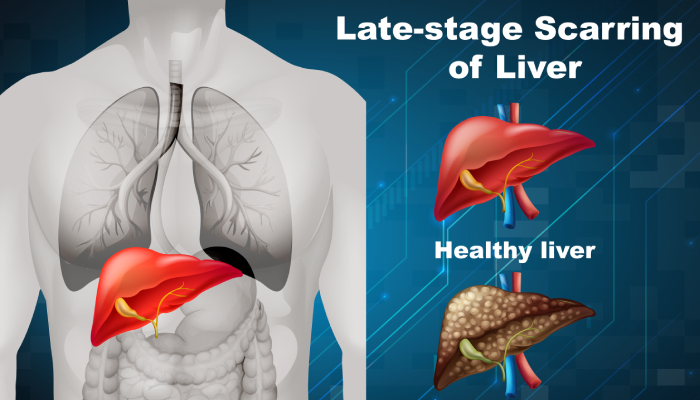Overview
A liver transplant is a surgical procedure where a failing liver is replaced with a healthy liver from a deceased or living donor. It is primarily recommended for patients with end-stage chronic liver disease or, in rare cases, sudden acute liver failure.
As the largest internal organ, the liver plays a crucial role in detoxification, metabolism, and digestion. For expert liver treatment, consult Dr. Ujwal Zambare, a renowned GI Surgeon, Gastroenterologist, and Liver Treatment Specialist in Wakad, Pune, offering advanced care and personalized treatment solutions.
Why it's done
A liver transplant is a medical option for certain persons with liver cancer and for those with liver failure whose condition cannot be controlled by existing treatments. Both abrupt and gradual liver failure is possible. An acute liver failure is a form of liver failure that develops quickly, usually within a few weeks. Acute liver failure is a rare illness that typically results from side effects from particular drugs.
Although a liver transplant may treat acute liver failure, it is more often used to treat chronic liver failure. Chronic liver failure occurs slowly over months and years. Chronic liver failure may be caused by a variety of conditions. The most common cause of chronic liver failure is scarring of the liver (cirrhosis). When cirrhosis occurs, scar tissue replaces normal liver tissue and causes the liver to not function properly. Cirrhosis is the most frequently reason for a liver transplant.


What tests are required before getting a Liver Transplant?
At your initial evaluation, your doctor will want to look through all of your medical files, X-rays, liver biopsy slides, operation reports, and a list of your medications. During your evaluation, some or all of the following studies are typically carried out to supplement and update earlier tests:
- Using X-rays and a computer, computed tomography (CT scan) generates images of the liver’s size, structure, blood flow, and any abnormalities. There can also be a requirement for a chest CT scan.
- Using a Doppler ultrasound, you can check to see if your liver’s blood arteries are open.
- To assess your heart, an echocardiogram and stress testing are recommended for adults.
- examinations of pulmonary function to ascertain the capacity of your lungs to exchange oxygen and carbon dioxide.
- Blood tests to identify blood type, assess the blood’s clotting capacity and biochemical state and assess liver function. Additionally included is serology screening, a blood test that tests for antibodies.
Risk Factors
A few possible side effects from liver surgery include:
- Bleeding
- Infection
- Blocked blood
- vessels to the new liver
- Leakage of bile or blocked bile ducts
- The new liver not working for a short time right after surger
How are candidates for Liver Transplant Determined?
Experts from a variety of disciplines evaluate liver transplant candidates. The assessment entails a review of the patient’s medical, surgical, and psychosocial past in addition to a number of tests. When assessing and choosing liver transplant candidates, many healthcare facilities use an interdisciplinary approach. The following individuals could be on this multidisciplinary healthcare team:
- Liver specialist (hepatologist).
- Transplant surgeons.
- A registered nurse with experience in caring for liver transplant patients serves as the transplant coordinator. Your primary point of contact with the transplant team will be this person.
- Please meet with a social worker to go through your financial needs, employment history, and network of friends and family.
- Psychiatrist to assist you in coping with potential side effects of liver transplantation, such as sadness and anxiety.
- Anesthesiologist, to explain any hazards associated with anesthesia.
- For those with a history of alcohol or drug problems, a chemical dependence specialist can be helpful.
- Please consult a nutritionist to assess your current nutritional situation.
Exercise
After a liver transplant, staying physically active is essential for maintaining both physical and mental health. Walking should be a priority in the initial recovery phase, gradually incorporating more activities like cycling, swimming, and low-impact strength training as your condition improves. Leading a healthy and active lifestyle post-transplant is possible, but it’s crucial to consult your doctor before starting or modifying any exercise routine. If you experience fatigue, pain, dizziness, or any unusual symptoms, seek medical advice immediately.
For expert post-transplant care, consult Dr. Ujwal Zambare, a leading GI Surgeon, Gastroenterologist, and Liver Treatment Specialist in Wakad, Pune, for personalized guidance and recovery support.
